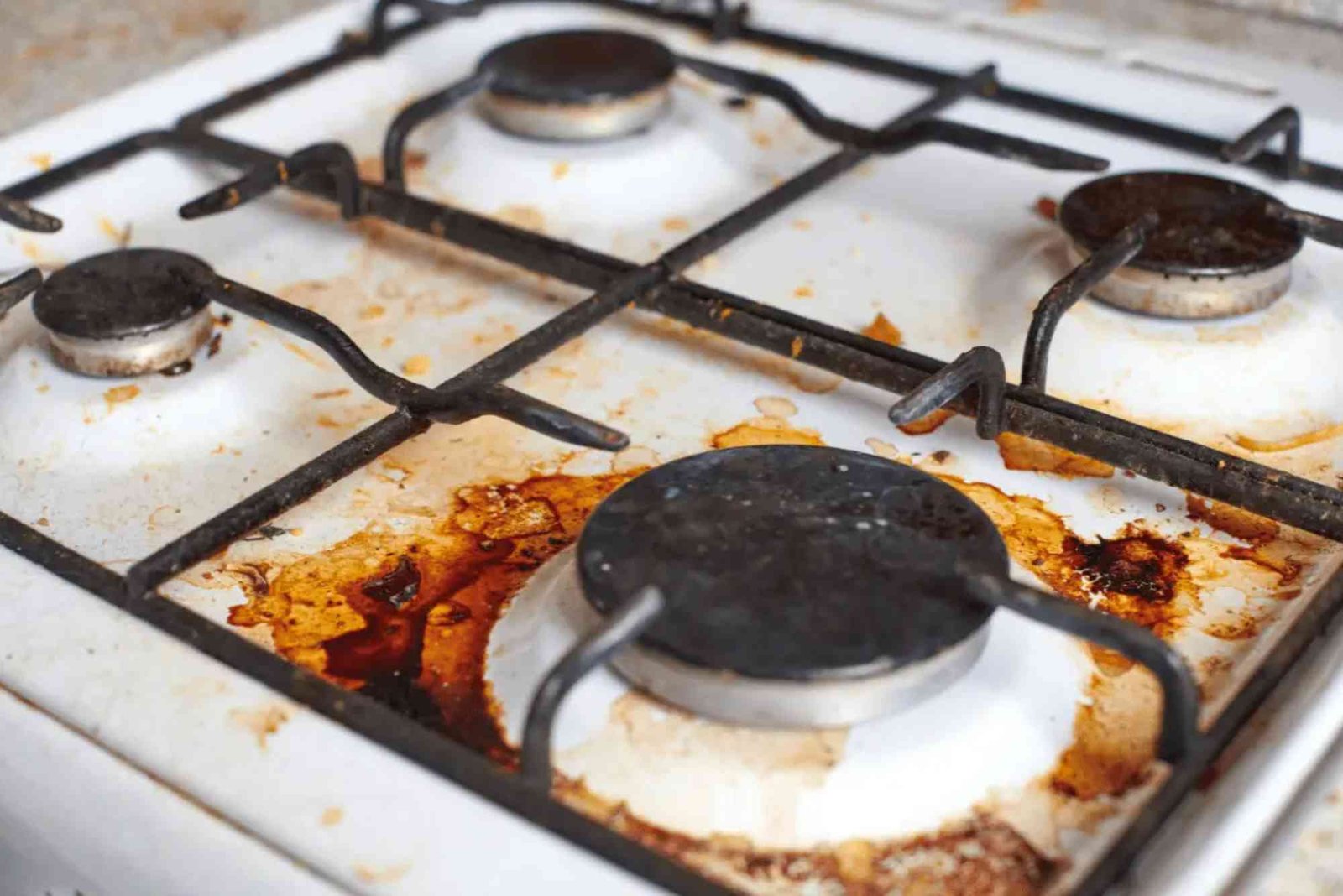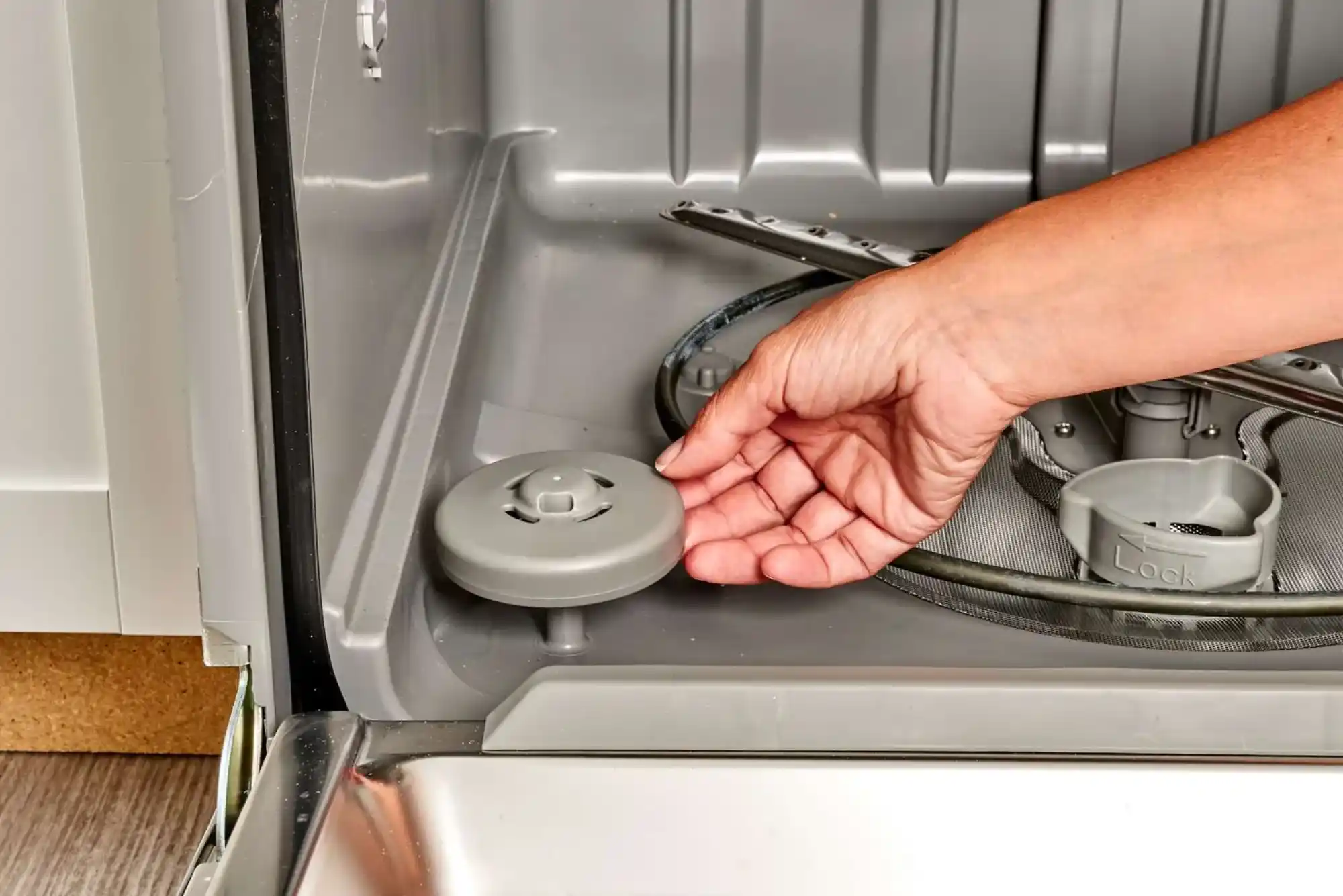Introduction
Keeping your kitchen spotless can be challenging, especially when it comes to dealing with stubborn grease. Cooking oils, fumes, and daily food splatters can turn any sparkling kitchen into a sticky mess. Learning how to clean a greasy kitchen effectively isn’t just about aesthetics—it’s about hygiene, safety, and maintaining a healthy environment. A clean kitchen prevents bacteria buildup, eliminates unpleasant odors, and keeps your appliances in top condition.
Cleaning a greasy kitchen effectively requires a strategic approach, using the right techniques, natural or commercial cleaners, and consistency. Whether you’re tackling greasy cabinets, stovetops, exhaust fans, or walls, following proven methods will make the task easier and more efficient.
Understanding the Source of Kitchen Grease
Grease builds up from cooking fats and oils that vaporize and settle on surfaces. Over time, this film hardens, making it difficult to remove with ordinary soap and water. High-heat cooking methods like frying or grilling release the most oil particles, which cling to walls, cabinets, and even ceilings. Understanding the origin of the grime helps you choose suitable cleaning products and strategies.
Essential Tools and Cleaning Products
Before you begin, gather the right supplies to ensure efficiency. Microfiber cloths, degreasers, baking soda, vinegar, dish soap, and warm water are your best friends in this battle. You can also use a soft scrub brush or sponge to reach corners and textured surfaces. Avoid abrasive materials that can scratch paint or stainless steel finishes.
If you prefer eco-friendly cleaning, natural ingredients like lemon, vinegar, and baking soda work wonders. They’re safe, non-toxic, and affordable.
Guide to Clean a Greasy Kitchen Effectively
Start with the Kitchen Exhaust and Vent Hood
The vent hood and filters collect massive amounts of grease over time. Remove the filters and soak them in a hot water solution with dish soap and baking soda for about 20 minutes. Scrub lightly with a brush, rinse, and let them air dry before reinstalling. Clean the hood’s exterior using a vinegar and water solution to dissolve sticky residue.
Degrease the Kitchen Cabinets
Kitchen cabinets, especially near the stove, attract grease quickly. Mix equal parts of vinegar and warm water in a spray bottle and apply the solution to cabinet surfaces. Let it sit for a few minutes before wiping it off with a clean cloth. For stubborn grease, add a teaspoon of dish soap or baking soda to the mix. Avoid soaking wooden cabinets to prevent damage—lightly mist and wipe instead.
Clean the Stovetop and Burners
The stovetop is the most grease-prone area in any kitchen. Remove grates or burner covers and soak them in hot soapy water. Use a mixture of baking soda and vinegar to scrub off hardened grease. Wipe the surface with a damp cloth afterward. For glass cooktops, use a special glass cleaner or a homemade paste of baking soda and water to avoid scratching.
Wipe Down Kitchen Walls and Backsplash
Kitchen walls and backsplashes can collect oil splatters without you noticing. Mix warm water, vinegar, and a few drops of dish soap. Wipe the walls using a microfiber cloth. Pay extra attention to areas behind the stove. If the backsplash is tiled, use an old toothbrush to clean the grout lines where grease tends to settle.
Tackle the Oven Interior
An oven often harbors baked-on grease that can produce smoke or bad smells. Make a paste of baking soda and water, spread it across greasy areas, and let it sit overnight. The next day, spray with vinegar and wipe it clean. This method effectively lifts burnt grease without harsh chemicals.
Refresh the Countertops and Sink
Wipe the countertops daily with a mild detergent and water solution. Avoid abrasive cleaners, especially on marble or granite surfaces. The sink should also be degreased regularly, as oil can cling to its surface. A mix of vinegar and baking soda will clean and deodorize the sink effectively.
Deep Clean Kitchen Appliances
Appliances like microwaves, toasters, and refrigerators also accumulate grease. For microwaves, heat a bowl of water and lemon slices for five minutes; the steam loosens grime, making it easier to wipe away. Use gentle cleaners for refrigerators and dishwashers to prevent odor buildup and bacterial growth.
Natural Cleaning Remedies That Work Wonders
Homemade cleaning solutions can be just as effective as commercial products. Baking soda acts as a gentle abrasive, vinegar cuts through oil, and lemon adds natural antibacterial power. Mix these ingredients in different ratios depending on the surface you’re cleaning.
For example, to clean greasy tiles, mix ½ cup of baking soda with ¼ cup of vinegar and warm water. Apply, let it sit, and wipe away for a gleaming finish. These natural solutions are safe for your family and reduce exposure to harsh chemicals.
Preventing Grease Buildup
The best way to maintain a clean kitchen is to prevent grease from accumulating. Wipe surfaces immediately after cooking. Use splatter guards on frying pans and cook with lids when possible. Run the exhaust fan every time you cook to reduce airborne grease particles. Regular cleaning, even for just ten minutes daily, keeps your kitchen looking new.
Common Mistakes to Avoid
Many people make the mistake of using the wrong products or cleaning techniques, which can damage kitchen surfaces. Avoid ammonia-based cleaners on wooden cabinets, as they strip off the finish. Do not use steel wool on non-stick or stainless-steel surfaces, as it leaves scratches. Always test new cleaners on a small, hidden area before applying them widely.
Expert Tips for a Sparkling Kitchen
Professional cleaners recommend a top-to-bottom approach—start with high surfaces like cabinets and move down to counters and floors. This way, dirt and grease don’t fall onto freshly cleaned areas. Always clean with microfiber cloths, which trap grease better than paper towels. Finish by mopping the floor with warm soapy water to remove any drips or residue from your cleaning session.
Benefits of Keeping Your Kitchen Grease-Free
A clean kitchen not only looks appealing but also boosts safety and hygiene. Grease buildup can lead to kitchen fires, attract pests, and produce unpleasant odors. Regular cleaning extends the lifespan of your kitchen equipment and improves air quality. Plus, cooking in a fresh, tidy environment is far more enjoyable and stress-free.
Learning how to clean a greasy kitchen effectively is essential for every home cook. With consistent effort and the right cleaning methods, your kitchen can remain a welcoming, sanitary, and inspiring space. Don’t wait for grime to take over—start small, clean regularly, and maintain cleanliness as a habit. A sparkling kitchen reflects not just cleanliness but care and discipline in your home.
If you want to explore more household and lifestyle tips, check out this Related Food article. You can also visit How To Clean A Greasy Kitchen Effectively for more kitchen care guides. Learn more about maintaining healthy living spaces from reliable resources.
FAQs
How do you remove thick kitchen grease?
Mix baking soda and vinegar into a paste, apply it to the greasy area, and let it sit for 15 minutes. Then, scrub with a soft brush or sponge and rinse clean.
What dissolves grease the fastest?
Vinegar and dish soap together work wonders. The acidity of vinegar cuts through grease while soap lifts it from surfaces easily.
Can I use baking soda to clean kitchen grease?
Yes, baking soda is a natural degreaser. It helps break down oily residue without scratching surfaces. Combine it with water or vinegar for extra cleaning power.
What is the best homemade degreaser for kitchen cabinets?
Mix 2 parts vinegar, 1 part baking soda, and a few drops of dish soap with warm water. Spray on the cabinets and wipe with a microfiber cloth.
How often should I clean my kitchen to prevent grease buildup?
A light daily wipe-down and a deep clean once a week prevent grease from hardening. Regular maintenance saves time and effort later.












